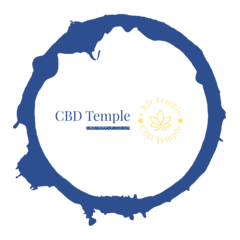Nootropics, often called “smart drugs” or cognitive enhancers, are substances that can improve cognitive function, particularly executive functions, memory, creativity, or motivation, in healthy individuals. They have become increasingly popular among students and professionals looking to enhance their cognitive abilities for studying and learning. This guide explores the best nootropics available, how they work, and how to choose the right one for your needs.
What Are Nootropics?
Nootropics are a class of substances that improve brain function. They can be natural or synthetic and are used to enhance memory, focus, creativity, intelligence, and motivation. While the term “nootropic” is relatively new, the use of substances to enhance cognition dates back centuries, with herbs and plants like ginkgo biloba and caffeine being used for their stimulating effects.
How Do Nootropics Work?
Nootropics work through various mechanisms, including increasing blood flow to the brain, enhancing neurotransmitter function, reducing inflammation, and protecting neurons from damage. These mechanisms can improve various aspects of cognitive function, including:
- Memory: Enhancing the storage and recall of information.
- Focus and Attention: Increasing concentration and the ability to stay on task.
- Mood and Motivation: Improving mood and motivation, which can enhance learning and productivity.
- Neuroprotection: Protecting the brain from damage and promoting overall brain health.
The Best Nootropics for Studying and Learning
1. Caffeine
Caffeine is one of the most widely used and well-known nootropics. Found in coffee, tea, and energy drinks, caffeine acts as a stimulant, blocking the adenosine receptors in the brain, which are responsible for promoting sleep and relaxation. This results in increased alertness, focus, and energy.
Benefits
- Improves alertness and concentration
- Enhances mood
- Increases physical performance
Considerations
While caffeine can be beneficial, it’s essential to use it in moderation. Excessive consumption can lead to jitteriness, anxiety, and disrupted sleep.
2. L-Theanine
L-Theanine is an amino acid found in tea leaves. It’s known for promoting relaxation without causing drowsiness. When combined with caffeine, L-Theanine can enhance the positive effects of caffeine while reducing jitteriness.
Benefits
- Promotes relaxation and reduces stress
- Enhances focus and attention
- Improves sleep quality
Considerations
L-Theanine is considered safe with few reported side effects. It pairs well with caffeine for a balanced boost in cognitive function.
3. Bacopa Monnieri
Bacopa Monnieri is an herb used in traditional Ayurvedic medicine. It’s known for its memory-enhancing properties and its ability to reduce anxiety and stress.
Benefits
- Enhances memory and learning
- Reduces anxiety and stress
- Protects brain cells from oxidative stress
Considerations
Bacopa Monnieri may take several weeks to show noticeable effects. It’s generally safe but can cause gastrointestinal issues in some people.
4. Rhodiola Rosea
Rhodiola Rosea is an adaptogenic herb known for its ability to reduce fatigue and increase mental endurance. It’s often used to combat stress and improve mood.
Benefits
- Reduces fatigue and exhaustion
- Enhances mood and well-being
- Improves mental performance under stress
Considerations
Rhodiola Rosea is generally well-tolerated, but it’s essential to start with a lower dose to assess individual tolerance.
5. Modafinil
Modafinil is a prescription medication used to treat sleep disorders like narcolepsy. It’s also used off-label as a cognitive enhancer. Modafinil promotes wakefulness and can improve focus and attention.
Benefits
- Enhances wakefulness and alertness
- Improves focus and concentration
- Increases productivity
Considerations
Modafinil should be used under medical supervision, as it can have side effects and may not be suitable for everyone.
6. Piracetam
Piracetam is a synthetic nootropic that belongs to the racetam family. It’s one of the oldest and most studied nootropics, known for improving memory and cognitive function.
Benefits
- Enhances memory and learning
- Improves neuroplasticity
- Protects against cognitive decline
Considerations
Piracetam is generally considered safe but may cause mild side effects like headaches or gastrointestinal discomfort.
7. Ginkgo Biloba
Ginkgo Biloba is a popular herbal supplement known for its cognitive-enhancing effects. It improves blood flow to the brain, which can enhance memory and cognitive function.
Benefits
- Improves memory and cognitive function
- Enhances blood circulation to the brain
- Acts as an antioxidant
Considerations
Ginkgo Biloba may interact with certain medications, so it’s essential to consult with a healthcare provider before use.
8. Omega-3 Fatty Acids
Omega-3 fatty acids, found in fish oil, are essential for brain health. They play a crucial role in maintaining the structure and function of brain cells and have been shown to improve cognitive function and mood.
Benefits
- Supports brain health and function
- Enhances memory and learning
- Reduces inflammation
Considerations
It’s essential to choose high-quality omega-3 supplements to avoid contaminants. Some people may experience gastrointestinal discomfort.
9. Creatine
Creatine is a compound often associated with muscle growth and athletic performance. However, it also has cognitive benefits. Creatine helps supply energy to the brain, which can enhance memory and cognitive function.
Benefits
- Increases mental energy
- Enhances memory and cognitive function
- Supports overall brain health
Considerations
Creatine is generally safe but may cause water retention. It’s essential to stay hydrated when using creatine supplements.
10. Lion’s Mane Mushroom
Lion’s Mane Mushroom is a medicinal mushroom known for its neuroprotective and cognitive-enhancing properties. It promotes the production of nerve growth factor (NGF), which is essential for the growth and maintenance of neurons.
Benefits
- Enhances cognitive function and memory
- Promotes nerve growth and brain health
- Reduces inflammation
Considerations
Lion’s Mane Mushroom is generally well-tolerated, but some individuals may experience allergic reactions.
How to Choose the Right Nootropic
Choosing the right nootropic depends on your specific needs and goals. Here are some factors to consider:
- Purpose: Identify what you want to achieve, whether it’s improved focus, memory, mood, or overall cognitive function.
- Safety: Consider the safety profile of the nootropic. Some substances may have side effects or interact with medications.
- Research: Look for nootropics with scientific backing and positive reviews. It’s essential to choose high-quality products from reputable sources.
- Dosage: Start with a lower dose to assess tolerance and gradually increase as needed. Follow the recommended dosages and guidelines.
- Consultation: If you have any medical conditions or are taking medications, consult with a healthcare provider before using nootropics.
Frequently Asked Questions (FAQs)
What are nootropics, and how do they work?
Nootropics are substances that enhance cognitive function, including memory, focus, creativity, and motivation. They work through various mechanisms, such as increasing blood flow to the brain, enhancing neurotransmitter function, and protecting neurons from damage.
Are nootropics safe to use?
Many nootropics are considered safe when used as directed. However, the safety of each nootropic depends on the specific substance, dosage, and individual factors. It’s essential to research and choose reputable products and consult with a healthcare provider if you have any concerns.
Can nootropics improve memory?
Yes, many nootropics have been shown to enhance memory and learning. Substances like Bacopa Monnieri, Piracetam, and Lion’s Mane Mushroom are known for their memory-boosting effects.
How long does it take for nootropics to work?
The onset of effects varies depending on the nootropic and individual response. Some nootropics, like caffeine and L-Theanine, can have immediate effects, while others, like Bacopa Monnieri and Lion’s Mane Mushroom, may take several weeks to show noticeable improvements.
Can I combine different nootropics?
Yes, combining different nootropics, known as “stacking,” can enhance their effects. However, it’s essential to research the safety and potential interactions of each substance and start with lower doses to assess tolerance.
Are there any side effects of using nootropics?
Some nootropics may have side effects, such as headaches, gastrointestinal discomfort, or jitteriness. The likelihood and severity of side effects depend on the specific nootropic and individual response. It’s essential to follow recommended dosages and consult with a healthcare provider if you have concerns.
Can nootropics replace a healthy lifestyle?
Nootropics can enhance cognitive function, but they should not replace a healthy lifestyle. A balanced diet, regular exercise, adequate sleep, and stress management are crucial for optimal brain health and function.
Are prescription nootropics more effective than natural ones?
Prescription nootropics, like Modafinil, can be highly effective but may come with a higher risk of side effects and potential for misuse. Natural nootropics, like herbal supplements and dietary components, generally have a safer profile but may have milder effects. The choice depends on individual needs and risk tolerance.
How do I know if a nootropic is working for me?
To determine if a nootropic is effective, track your cognitive performance, mood, and energy levels before and after use. Consider factors like memory recall, focus, mental clarity, and overall well-being. It’s also helpful to keep a journal to monitor changes and assess the nootropic’s impact.
Can I take nootropics long-term?
Some nootropics can be taken long-term, while others are best used occasionally or cycled to avoid tolerance and side effects. It’s essential to research each nootropic’s safety profile and consult with a healthcare provider for personalized advice.
Conclusion
Nootropics offer a promising way to enhance cognitive function, memory, focus, and overall brain health. Whether you’re a student looking to boost your learning capabilities or a professional seeking to improve productivity, the right nootropic can make a significant difference. However, it’s essential to approach nootropics with caution, choosing high-quality products and consulting with a healthcare provider when necessary. Remember that nootropics are just one tool in the quest for cognitive enhancement, and maintaining a healthy lifestyle is equally important for optimal brain function.
- Xela Rederm Skin Booster Treatments Near Sutton, Surrey - January 11, 2025
- Upper Face Anti Wrinkle Treatment Near Stoke D’Abernon, Surrey - January 7, 2025
- Skin Injectables Near Ottershaw, Surrey - January 5, 2025


